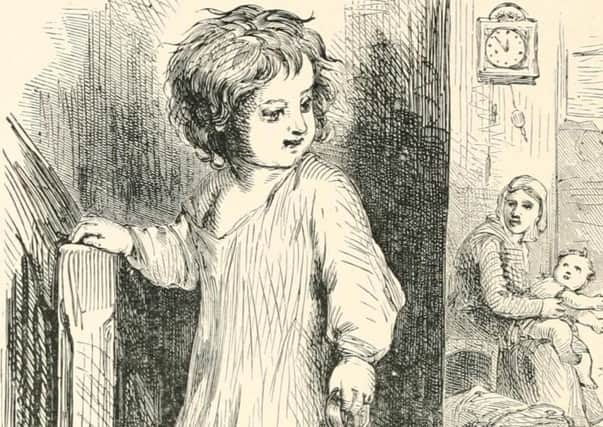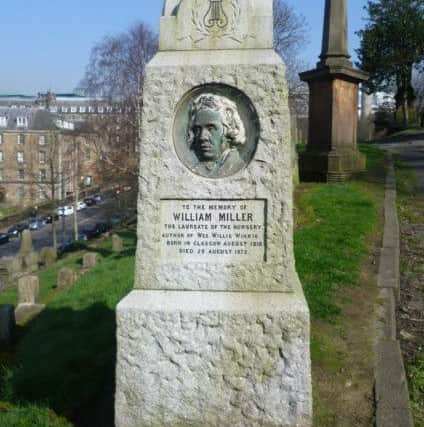OTD 1872: Working class poet behind Willie Winkie dies


But despite widespread recognition for his work, William Miller, who became known as the Laureate of the Nursery, died in poverty on this day, August 20, in 1872.
Miller was a wood turner and cabinet maker in Glasgow and kept working his trade in order to support his family.
Advertisement
Hide AdAdvertisement
Hide AdIll health was to dog his later life with a public subscription launched to ease the burden on Miller, whose work in Scots was translated in numerous different languages, after he was forced to give up work.


Willie Winkie first appeared in book in Whistle Binkie, Stories for the Fireside, a collection of new Scottish lyrics, in 1841, with publisher David Robertston seeking a second opinion from his peers after receiving the poem.
The manuscript was sent to a regular contributor to the publication in Edinburgh for consideration.
“He returned it at one as being a first-class song, and likely to be the gem of the collection,” one obituary recalled.
Advertisement
Hide AdAdvertisement
Hide AdMiller was born in 1810 in Glasgow and raised in Parkhead, then a village.
He was an ‘excellent workman’ who was devoted to reading and depicting ‘such pictures of humble life and feeling as were suggested to him but what he saw passing around him’, according to accounts.
Miller contributed to local newspapers and periodicals with most of his work completed before the age of 36.
Miller’s other poems included Gree Bairnies Gree and The Wonderful Wean with children providing the ultimate inspiration for the writer.
Advertisement
Hide AdAdvertisement
Hide Ad“Miller loved to write about kythesome cheery weans whom he met laffin and daftin’ and there is no doubt they liked the poet, for he was blithesomse, too, and very gentle and kindly,” one account said.
In the year before his death, Miller suffered from an ulcerated leg with his condition deteriorating over time.
He was nursed by an “affectionate wife” with the poet moving to live at the home of his “dutiful son” at his home in Blantyre in the last months of his life.
Friends of the poet launched a public subscription to generate funds for the family.
Advertisement
Hide AdAdvertisement
Hide AdAn article in the Greenock Telegraph and Clyde Shipping Gazette, on July 29 1872, said one ‘handsome subscription’ had been made by a supporter in London but that the merchants of Glasgow had yet to show their support for the writer.
A report said: “We regret to see that the merchant princes of Glasgow are contributing - if they are contributing at all - on a scale which does not say much for their appreciation of poetry.”
One merchant had paid in 20 shillings and another a pound, the article said.
The story continued: “And the bard, besides feeling a genuine poet, has been all his day a decent hard working, God-fearing man, paying his way and even when old and laid aside by illness, asking nobody to help him - nay so independent in spirit that he begged his friends to make no appeal on his behalf.
Advertisement
Hide AdAdvertisement
Hide Ad“To this true poet and true man, in his day or trouble, when he can no longer work for his bread, the merchant princes of Glasgow throw a contemptuous trifle which would not keep them in brandy and soda for a day. On the whole, we should prefer to see them give nothing.”
Miller is buried in Tollcross, in a plot that does not bear his name, according to the Scottish Poetry Library.
There is a memorial to Miller in the Glasgow Necropolis, and in 2009 a plaque was placed on the wall of the Wellpark Brewery, the home of Tennent’s Lager, which stands on the site of his former home in Dennistoun.
